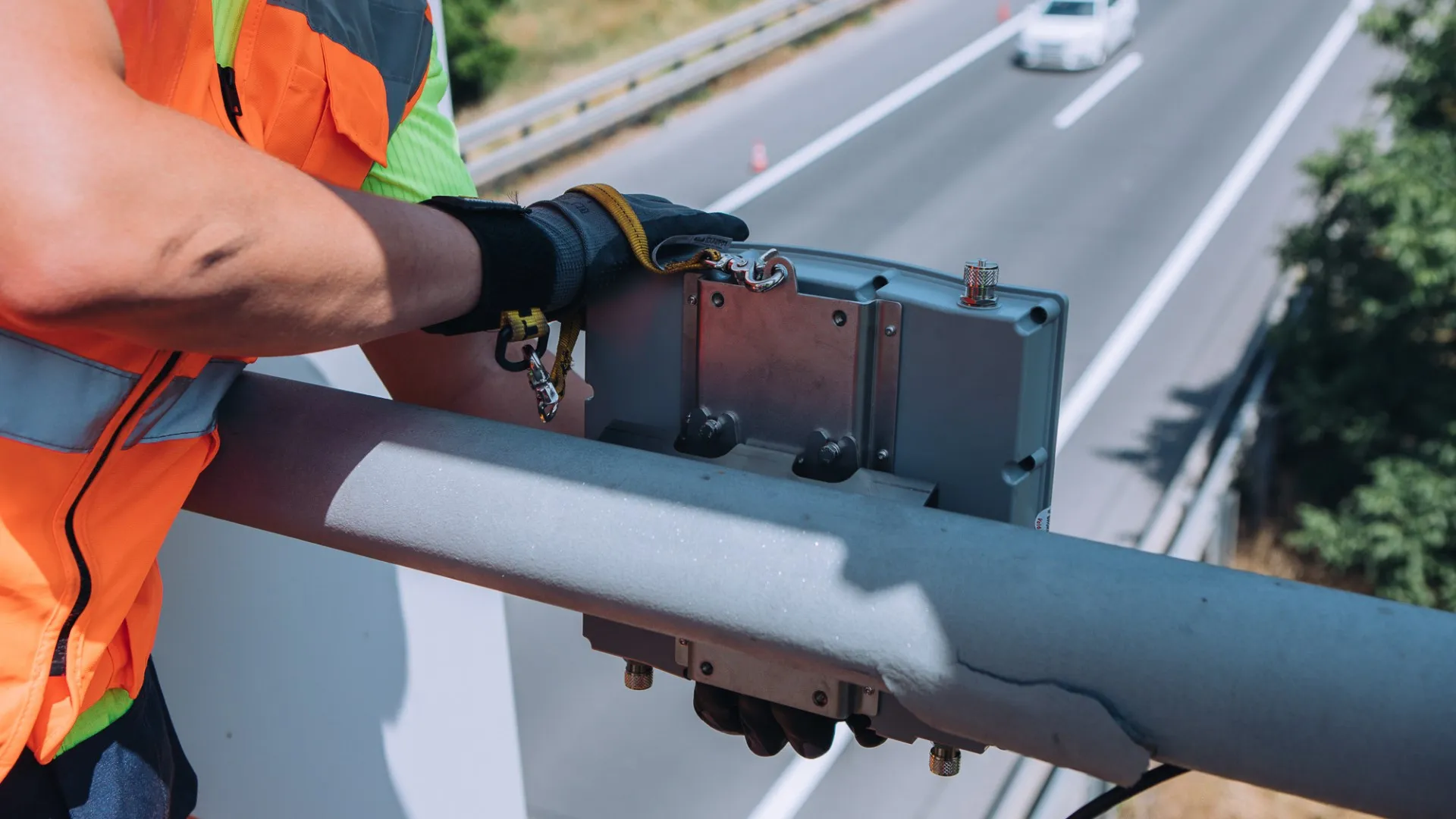A driverless truck, demonstrated this week by Pennsylvania vehicle manufacturer Royal Truck and Equipment, could help improve workzone safety, says the company.
The truck, fitted with special rear-end crash attenuators and lights, was demonstrated using GPS waypoints and following a lead car, mimicking its path, braking and speed.
The company has teamed up with Micro Systems to integrate military technology into truck mounted attenuators (TMA), which are used on many roads in the US to protect workers
August 27, 2015
Read time: 2 mins
A driverless truck, demonstrated this week by Pennsylvania vehicle manufacturer Royal Truck and Equipment, could help improve workzone safety, says the company.
The truck, fitted with special rear-end crash attenuators and lights, was demonstrated using GPS waypoints and following a lead car, mimicking its path, braking and speed.
The company has teamed up with Micro Systems to integrate military technology into truck mounted attenuators (TMA), which are used on many roads in the US to protect workers at road construction sites where there are no barricades.
The automated truck mounted attenuator (ATMA) truck is equipped with an electro-mechanical system and fully integrated sensor suite that will enable leader/follower capability that allows the ATMA to follow a lead vehicle completely unmanned.
Manned trucks fitted with impact attenuators, or crash cushions, on the rear of the vehicle, which absorb impacts and protect workers, have been credited with saving lives, but the drivers of the trucks are inevitably placed in harm’s way, “literally waiting to be struck,” said Robert Roy, president of Royal Truck & Equipment, maker of the autonomous trucks.
“Any time a driver can be removed from these vehicles in a very dangerous situation, and if the vehicle’s struck, there’s nobody inside of it to receive the damage or the injuries, that’s measuring success,” Roy said.
Two of the autonomous vehicles are set to make their debut at highway construction sites in Florida by the end of the year under a state department of transportation demonstration program.
The truck, fitted with special rear-end crash attenuators and lights, was demonstrated using GPS waypoints and following a lead car, mimicking its path, braking and speed.
The company has teamed up with Micro Systems to integrate military technology into truck mounted attenuators (TMA), which are used on many roads in the US to protect workers at road construction sites where there are no barricades.
The automated truck mounted attenuator (ATMA) truck is equipped with an electro-mechanical system and fully integrated sensor suite that will enable leader/follower capability that allows the ATMA to follow a lead vehicle completely unmanned.
Manned trucks fitted with impact attenuators, or crash cushions, on the rear of the vehicle, which absorb impacts and protect workers, have been credited with saving lives, but the drivers of the trucks are inevitably placed in harm’s way, “literally waiting to be struck,” said Robert Roy, president of Royal Truck & Equipment, maker of the autonomous trucks.
“Any time a driver can be removed from these vehicles in a very dangerous situation, and if the vehicle’s struck, there’s nobody inside of it to receive the damage or the injuries, that’s measuring success,” Roy said.
Two of the autonomous vehicles are set to make their debut at highway construction sites in Florida by the end of the year under a state department of transportation demonstration program.









